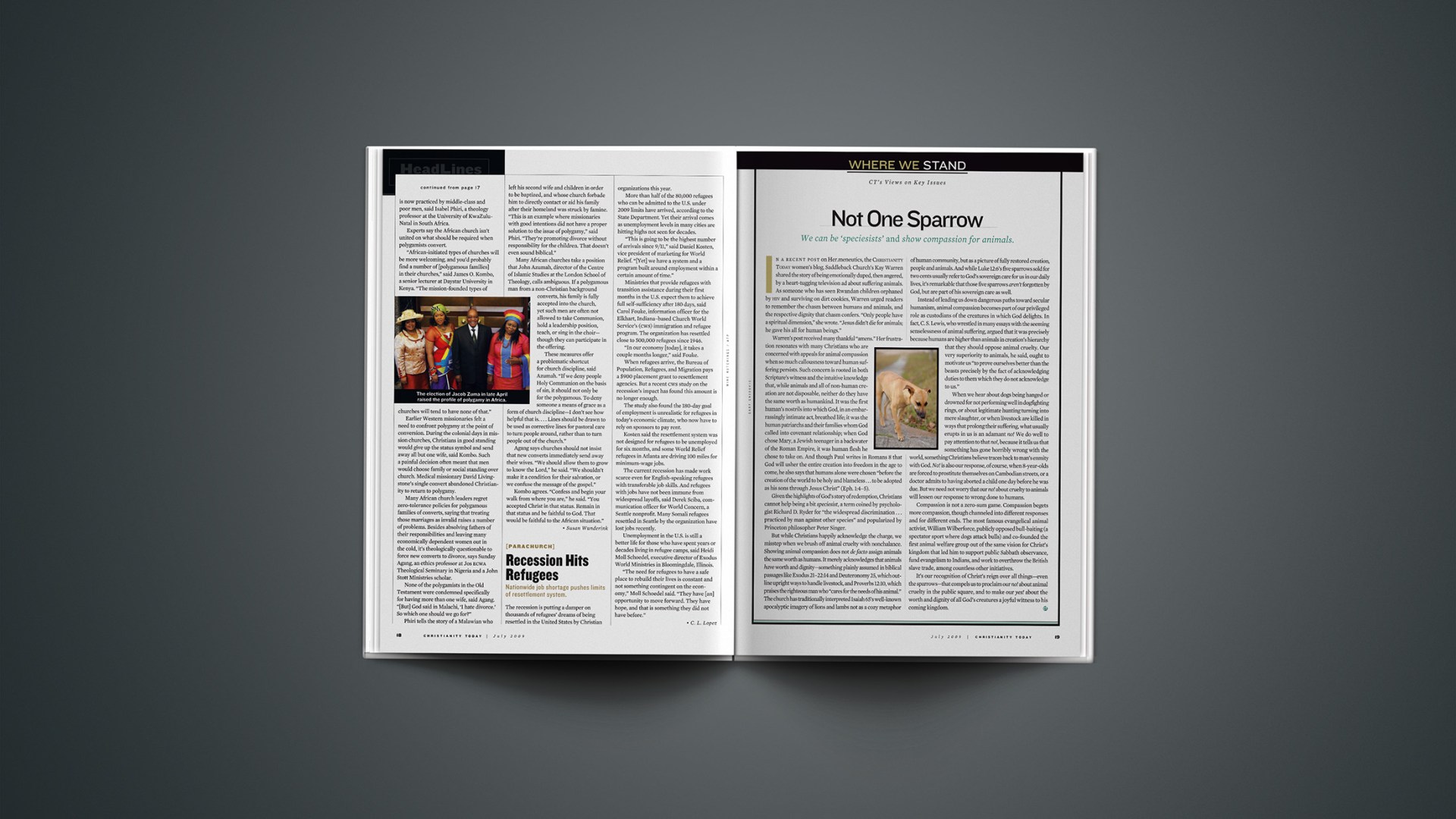The recession is putting a damper on thousands of refugees’ dreams of being resettled in the United States by Christian organizations this year.
More than half of the 80,000 refugees who can be admitted to the U.S. under 2009 limits have arrived, according to the State Department. Yet their arrival comes as unemployment levels in many cities are hitting highs not seen for decades.
“This is going to be the highest number of arrivals since 9/11,” said Daniel Kosten, vice president of marketing for World Relief. “[Yet] we have a system and a program built around employment within a certain amount of time.”
Ministries that provide refugees with transition assistance during their first months in the U.S. expect them to achieve full self-sufficiency after 180 days, said Carol Fouke, information officer for the Elkhart, Indiana-based Church World Service‘s (CWS) immigration and refugee program. The organization has resettled close to 500,000 refugees since 1946.
“In our economy [today], it takes a couple months longer,” said Fouke.
When refugees arrive, the Bureau of Population, Refugees, and Migration pays a $900 placement grant to resettlement agencies. But a recent CWS study on the recession’s impact has found this amount is no longer enough.
The study also found the 180-day goal of employment is unrealistic for refugees in today’s economic climate, who now have to rely on sponsors to pay rent.
Kosten said the resettlement system was not designed for refugees to be unemployed for six months, and some World Relief refugees in Atlanta are driving 100 miles for minimum-wage jobs.
The current recession has made work scarce even for English-speaking refugees with transferable job skills. And refugees with jobs have not been immune from widespread layoffs, said Derek Sciba, communication officer for World Concern, a Seattle nonprofit. Many Somali refugees resettled in Seattle by the organization have lost jobs recently.
Unemployment in the U.S. is still a better life for those who have spent years or decades living in refugee camps, said Heidi Moll Schoedel, executive director of Exodus World Ministries in Bloomingdale, Illinois.
“The need for refugees to have a safe place to rebuild their lives is constant and not something contingent on the economy,” Moll Schoedel said. “They have [an] opportunity to move forward. They have hope, and that is something they did not have before.”
Copyright © 2009 Christianity Today. Click for reprint information.
Related Elsewhere:
See Christianity Today’s news section and liveblog for more news updates.
Previous Christianity Today articles on refugees include:
The New Refugees | As the U.S. opens to Iraqis and Burmese, refugee ministries must adjust. (October 7, 2008)
The Town that Loves Refugees | Christians in Utica, New York are resettling the world one displaced soul at a time. (February 15, 2007)
Homeland Security’s Catch-22 for Exiles | ‘Ridiculous’ interpretation of law bars thousands. (May 1, 2006)









